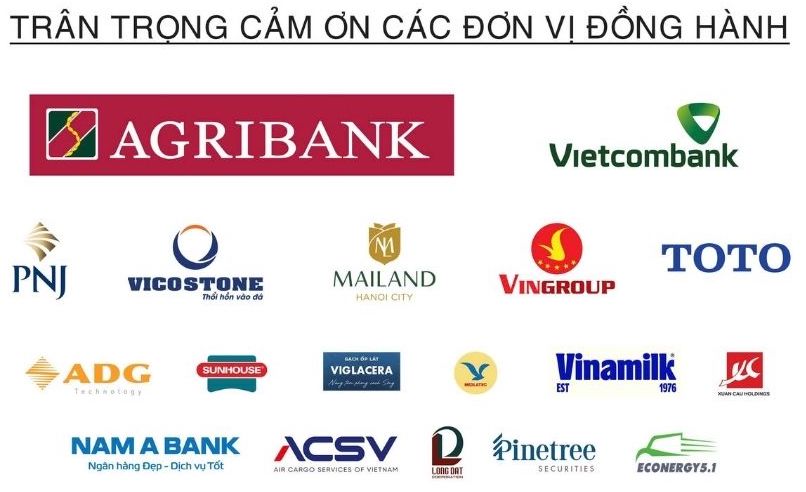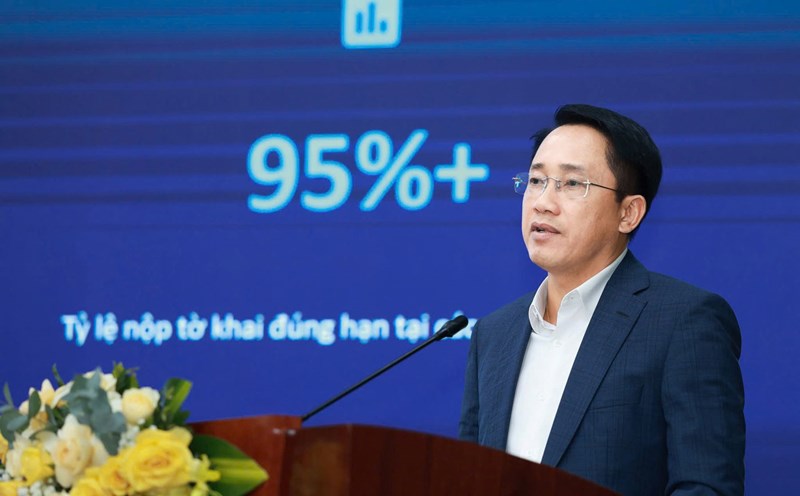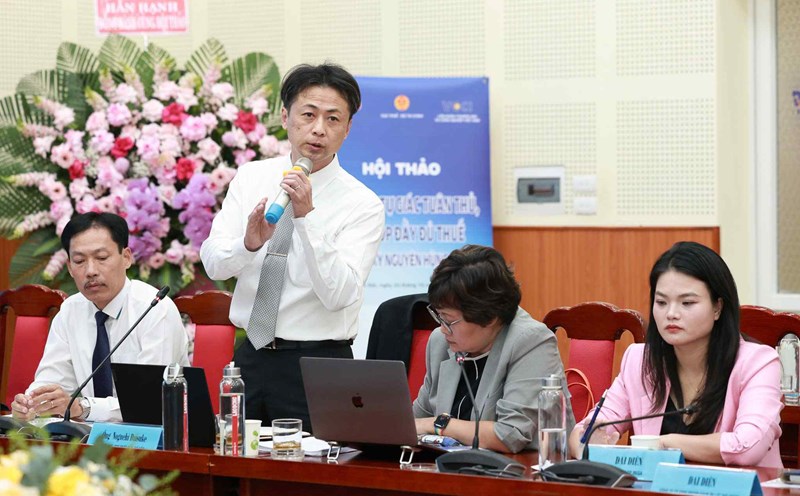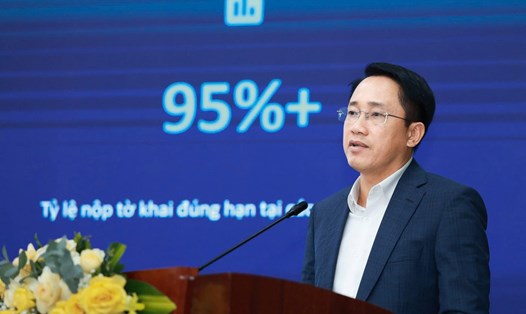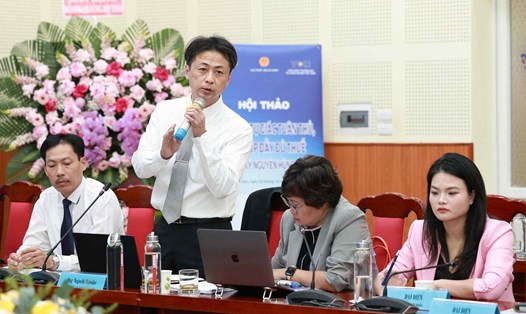Implementing Resolution No. 68-NQ/TW dated May 4, 2025 of the Politburo, Resolution No. 198/2025/QH15 of the National Assembly, Resolution No. 138/NQ-CP and 139/NQ-CP of the Government on private economic development, the Ministry of Finance issued the Project "Converting tax models and methods for business households when abolishing corporate income tax" attached to Decision No. 3389/QD-BTC.
Accordingly, fundamental solutions are identified to complete the goal of officially eliminating contract tax from January 1, 2026, creating an important shift in tax management for business households and individuals.
The project marks an important turning point in the process of modernizing tax management, towards a fair, transparent, effective and tax-friendly tax system for taxpayers, while ensuring a smooth transition, without interrupting production and business activities of business households and maintaining a stable source of state budget revenue.
Tax declaration method - Simple, transparent, easy to predict
The transition from the contract tax method to the declaration method is a change in approach and confidence. On the basis of placing trust in taxpayers to self-declare and pay taxes based on actual revenue, and tax authorities focusing on their role in supporting, authenticating and ensuring fairness through electronic data.
In terms of simplicity, the method of calculating taxes according to the formula of actual revenue multiplied by (x) tax rate by industry and field of operation helps business households understand and implement easily. Revenue is determined based on actual data instead of sealing, which will ensure fairness among business households. In addition, through the application of technology and electronic tax services, business households can declare and pay taxes online quickly, saving time and costs.
Regarding fairness and transparency, the method of declaration overcomes the limitations of contract tax when all data is recorded and verified through electronic invoices and sales software, creating trust between taxpayers and tax authorities. Thanks to that, the tax rate reflects the business scale of each household, those with small businesses pay less, those with large businesses pay the corresponding portion, ensuring fairness and transparency between business households.
Regarding the ability to forecast and proactively plan, tax declaration helps business households regularly monitor revenue, expenses, profits and losses right on the electronic system, thereby making financial plans and adjusting business activities in a timely manner. Business households no longer have to estimate but can proactively calculate tax obligations, estimate costs, and expand or narrow the scale to suit reality. When data is digitized and connected, tax authorities also shift from "management - inspection" to "support - service", creating a foundation for a culture of voluntary compliance.
In reality, many business households have realized the benefits of conversion and proactively implemented it. According to data from the tax authority, in the first 9 months of 2025, more than 18,500 business households paid taxes transferred to the declaration method, nearly 2,530 business households transferred to the business model.
In particular, 98% of the number of declared business households have declared and paid taxes electronically; over 133,000 business households registered to use electronic invoices generated from cash registers (of which about 75,000 households declared and 57,600 households contracted). These figures show that positive changes are happening every day, and businesses have gradually trusted and proactively adapted to the declaration method.
To make business households feel secure in converting, the Tax authority has been focusing on implementing synchronous solutions in the Project on converting models and methods of tax management for business households when eliminating contract tax issued with Decision 3389/QD-BTC of the Minister of Finance; in the spirit of accompanying taxpayers, especially focusing on implementing 03 groups of solutions:
First, perfecting transparent and fair institutions and policies. Accordingly, preside over the drafting of the Law on Tax Administration; advise and propose amendments to the Law on Personal Income Tax (expected to be submitted to the National Assembly at the 10th session - October 2025). At the same time, the Circulars and Guiding Decrees will be reviewed for synchronous amendments, ensuring synchronous implementation and achieving results. The goal is to build a clear, transparent legal framework, simplify and automate declaration forms to help businesses feel secure when converting from contract tax to the declaration method.
At the same time, the Tax Department continues to coordinate with the Department of Accounting Supervision and Auditing Management of the Ministry of Finance to complete the issuance of guiding documents on accounting regimes to meet simple, transparent and more convenient requirements in management, helping business households to be able to do so without hiring accountants.
Second, simplify procedures, develop smart electronic tax services. Simplify forms and declarations to reduce administrative procedure processing time and compliance costs; increase the provision of smart, automated electronic tax services, aiming to apply smart electronic declaration forms with data suggestions.
Tax authorities continue to provide smart, easy-to-use, and user-friendly electronic tax services (free) integrated from registration, declaration, tax payment, tax refunds, etc. on the Electronic Information Portal, the National Public Service Portal, and the eTax Mobile application. New functions such as smart electronic tax declarations have been and are being developed in the direction of automatically filling in tax registration information, Suggestions for declarations... business households only need to check and confirm the information.
Third, innovate propaganda work, support taxpayers, and guide taxpayers to understand and do easily. The Tax Department has developed a communication and support plan to implement uniformly throughout the industry, to help businesses clearly understand the practical benefits of the new policy, create trust and support, and thereby proactively implement. Diversify propaganda work, support business households and implement support programs suitable for industries and business household scale, combined with the application of modern technology such as AI, Chatbot to improve quality and support efficiency.
Improve the quality of human resources, take taxpayers as the center of service, establish Working Groups to support business households in conversion in all localities. These working groups will directly guide business households throughout the entire conversion process. The ultimate goal is to help each business household feel supported, well served, and feel secure in fulfilling their tax obligations.
At the same time, actively coordinate with Associations and businesses to consult and provide solutions and services on taxes and electronic invoices to implement training programs and coaching on tax policies, build professional notebooks to improve governance and accounting capacity as well as provide maximum support for business households to access preferential solutions for accounting and electronic invoices.
Promoting voluntary compliance through the application of the declaration method
The transition to the tax declaration method marks the transition from an inspection-based and supervisory management model to a confident and data-based model. Accordingly, it will enhance the role and proactiveness of taxpayers in fulfilling their obligations to the state, promote voluntary compliance and transparency in declaration to help people clearly see the tax calculation mechanism, understand why and how much to pay, thereby forming a self-awareness and proactive compliance.
At the same time, the application of digital technology in tax declaration and payment plays an important role in facilitating compliance. With just an electronic tax account, businesses can declare and pay taxes right on the phone - operating quickly, transparently, and saving time.
Thus, the tax declaration method is not only a more accurate tax calculation tool, but also a mechanism to build a culture of voluntary compliance - where transparency, trust and convenience become a driving force for business households to proactively accompany the State, towards a modern, transparent, fair tax system and sustainable development.
With the solutions that have been and will be implemented, the tax authority will continue to accompany taxpayers throughout the conversion process. With the cooperation of news agencies, newspapers, associations, associations, businesses, economic and financial experts, international experts and the trust of business households, this process will contribute to forming a culture of voluntary compliance, spreading the spirit of cooperation and transparency throughout society. When conditions are created and their role is properly recognized, business households will become a dynamic, competitive, and sustainable economic force, contributing positively to the socio-economic development of the country.
